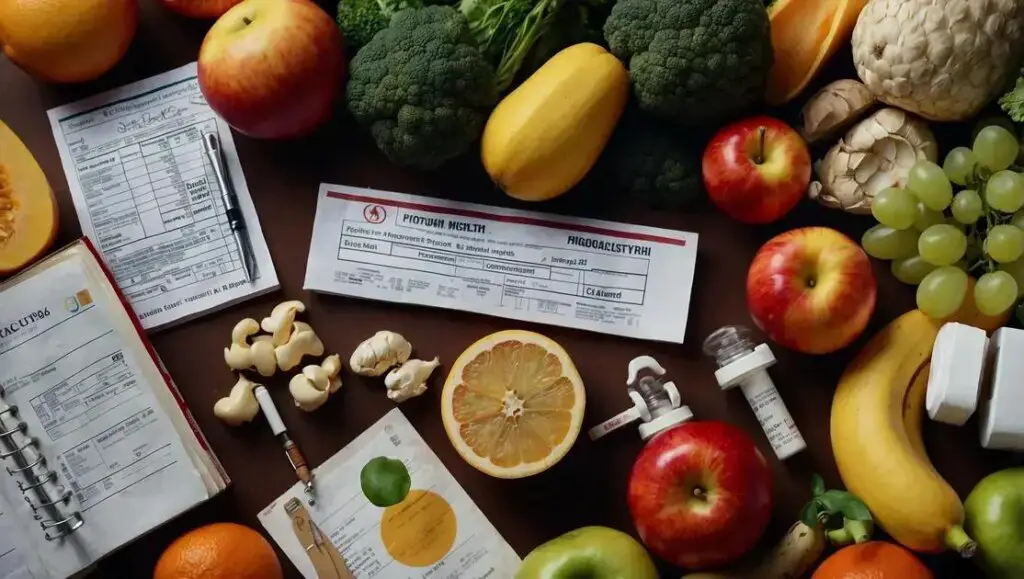Health misconceptions can create significant barriers to understanding our well-being. Many individuals fall victim to widely held beliefs that lack scientific backing, leading to decisions that may harm rather than help their health. This article will explore common misunderstandings, such as the truth about detox diets, the sodium myth, and whether organic foods are always the healthier choice. By debunking these myths, readers can pave the way for healthier living based on facts.
Table of Contents
ToggleWhat Are Common Health Misconceptions?
There are many common health misconceptions that circulate widely, leading to confusion and misinformation. One prevalent myth is that solar flares directly affect human health. While solar activity can impact technology and satellites, there is no strong evidence showing that it poses significant health risks to humans.
Myths About Food and Diet
Another common misconception is centered around detox diets. Many believe these diets are essential for cleansing the body. However, our bodies naturally detoxify through the liver and kidneys, and there is little scientific support for the effectiveness of detox diets.
Vaccination Fears
Debunking the myths about vaccinations is crucial as many people fear vaccination side effects. Vaccines are rigorously tested for safety and efficacy before being approved, and the benefits far outweigh the potential risks.
Understanding Carbs
People often think that all carbs are bad for them. In truth, carbohydrates are a necessary part of a balanced diet. The key is to choose complex carbohydrates like whole grains and vegetables over simple sugars and processed foods.
Sodium Facts
Another misconception is that all sodium is unhealthy. While it’s important to watch sodium intake, it is also vital to understand that sodium plays a crucial role in regulating fluid balance and other bodily functions.
The Supplement Myths
Many turn to supplements believing they can replace a balanced diet. However, getting nutrients from whole foods is more beneficial because they contain a variety of other compounds that promote health.
Water Intake Misunderstandings
There’s a prevailing myth that everyone needs to drink 8 glasses of water daily. Hydration needs can vary widely based on factors like activity level, climate, and personal health. Listening to your body’s thirst signals is more effective.
Mental Health Stigmas
Misunderstandings also extend to mental health. Many people wrongly believe mental health issues are a sign of weakness. In reality, mental health disorders are medical conditions that require understanding and support.
The Organic Foods Myth
Lastly, there is a misconception that organic foods are always healthier than conventional foods. While organic foods can be part of a healthy diet, they are not inherently superior in nutrition. The overall diet quality is what truly matters.
The Truth About Detox Diets
Many people believe in the power of detox diets to cleanse the body and promote health. However, it’s important to understand what these diets really do. Detox diets often promise rapid weight loss and improved health, but most of these claims are misleading.
What Is a Detox Diet?
A detox diet usually involves consuming only juices, smoothies, or specific foods for a certain period. The idea is to eliminate toxins from the body. But in reality, your body already has a built-in detox system. The liver and kidneys naturally filter out toxins from your body without the need for extreme diets.
Effectiveness and Risks
Detox diets can lead to short-term weight loss, primarily because they restrict calories. However, this weight loss is often temporary. When regular eating resumes, the weight typically comes back. Furthermore, these diets can be nutritionally incomplete and may cause side effects such as fatigue, weakness, and digestive issues.
Real Cleansing: A Balanced Approach
Instead of going on a fad detox diet, consider a balanced approach to eating. Include a variety of fruits, vegetables, whole grains, and lean proteins in your diet. This provides your body with the nutrients it needs to function well and detoxify naturally.
Hydration and Its Benefits
Staying well-hydrated is key to maintaining your body’s natural detox process. Drinking plenty of water helps your kidneys flush out waste effectively. Aim for at least 8 glasses of water a day, but adjust based on your activity level and climate.
Understanding Food Choices
Not all detox foods are beneficial. Many detox programs promote expensive juices, supplements, or herbs that are often not necessary for good health. Whole foods, like fruits and vegetables, are generally better options. They provide fiber and essential nutrients while supporting healthy digestion.
Consult a Professional
If you’re thinking about changing your diet significantly, it’s best to consult a healthcare professional. Nutritionists can help you create a personalized plan that supports your health goals without resorting to extreme measures.
Key Takeaway
In summary, detox diets may sound appealing, but they are often based on misconceptions about health. Instead of relying on detox diets, focus on balanced eating and healthy lifestyle choices for genuine health benefits.
Debunking Myths About Vaccinations
Vaccinations are one of the most important public health tools to prevent diseases. However, there are many misconceptions surrounding their safety and effectiveness. One common myth is that vaccinations cause autism. This belief has been thoroughly debunked by numerous studies, which found no link between vaccines and autism.
Safety of Vaccines
Another frequent concern is that vaccines are not safe. It is essential to understand that vaccines undergo rigorous testing before approval. The Centers for Disease Control and Prevention (CDC) and the World Health Organization (WHO) both endorse vaccines as a safe and effective way to protect against various diseases.
Natural Immunity vs. Vaccination
Some people argue that natural infection provides better immunity than vaccination. While it is true that surviving an illness gives some immunity, the risks of serious complications from diseases can be much higher than any potential vaccine side effects. Vaccines provide a safe way to build immunity without experiencing the disease itself.
Herd Immunity
Herd immunity is another significant benefit of vaccinations. When a large percentage of the population is vaccinated, it helps protect those who cannot be vaccinated, such as infants and individuals with certain medical conditions. Vaccination protects everyone in the community.
Timing of Vaccinations
Some parents worry that too many vaccines are given at one time. However, the CDC provides a vaccine schedule that is carefully designed to ensure children’s safety and health. Spacing out vaccines is unnecessary and can leave children vulnerable to preventable diseases.
Vaccine Ingredients
Concerns about ingredients in vaccines are also common. While some people fear that vaccine ingredients can be harmful, it is important to note that the amounts used are safe. Adjuvants, preservatives, and other components are present in tiny amounts, all approved by health authorities.
Misunderstanding Side Effects
It is normal to experience mild side effects after vaccination, such as soreness at the injection site or a low-grade fever. Many see these effects and mistakenly believe the vaccine is harmful. In truth, these are signs that the body is building protection.
Importance of Vaccination
To sum up, debunking myths about vaccinations is crucial for community health. Vaccines save millions of lives annually by preventing diseases that can lead to severe health complications or death. Understanding the facts about vaccinations helps individuals make informed decisions about their health and the health of their families.
Are Carbs Really Bad for You?
Many people believe that carbohydrates are bad for you, but this is a common misunderstanding. Carbs are the body’s primary source of energy and are essential for overall health. It’s crucial to distinguish between different types of carbohydrates.
Types of Carbohydrates
There are two main types of carbs: simple carbohydrates and complex carbohydrates. Simple carbs are found in sugars like candy and soda, while complex carbs are found in whole grains, fruits, and vegetables. Healthy carbohydrates, such as those in vegetables and whole grains, provide fiber and nutrients that support bodily functions.
The Role of Carbohydrates in Your Diet
Carbohydrates are important for providing energy for daily activities and brain function. When you eat carbs, your body breaks them down into glucose, which is used for fuel. Without adequate carbs, you may feel fatigued and unable to concentrate.
Choosing Healthy Carbs
Choosing the right carbs can greatly impact your health. Whole grains, like brown rice and oats, are good sources of fiber. This can help you feel full longer and regulate digestion. On the other hand, refined carbs, such as white bread and sugary snacks, can cause quick spikes in blood sugar and are often low in nutrients.
Portion Control is Key
It’s not just about whether carbs are good or bad. Portion control plays an important role. Eating large amounts of any type of food, including healthy carbs, can lead to weight gain. Balance is essential in any diet.
Myths About Low-Carb Diets
Some popular diets suggest cutting out carbs to lose weight quickly. While this can lead to short-term weight loss, it’s not sustainable and can deprive your body of necessary nutrients. A balanced diet with moderate carbs is more effective for long-term health.
Carbs and Weight Management
Many studies have shown that including healthy carbs in your diet can actually aid in weight management. When combined with proteins and fats, carbs help create a satisfying meal that curbs overeating. This means that carbs can fit into a healthy lifestyle.
Final Thoughts on Carbs
In summary, carbs are not bad for you when chosen wisely. They are essential for energy and provide vital nutrients. Instead of cutting out carbs completely, focus on incorporating healthy options into your diet and practicing moderation.
Understanding the Sodium Myth
The myth that sodium is entirely bad for your health is common, but it needs clarification. Sodium is an essential mineral that your body needs to function properly. It helps regulate fluid balance, supports muscle contractions, and plays a role in nerve function.
The Importance of Sodium
Your body requires sodium to maintain blood pressure and ensure that your muscles and nerves work correctly. It is naturally present in our diets through foods like celery, beets, and milk. However, the real concern arises from the excessive sodium found in processed foods.
Excessive Sodium Intake
While sodium is necessary, consuming too much can lead to health problems, particularly high blood pressure. Many health experts recommend not exceeding 2,300 milligrams of sodium per day. Most people consume much more due to processed foods that often contain hidden salts.
Processed Foods and Hidden Sodium
Processed and packaged foods, such as frozen meals, canned soups, and snack foods, can be high in sodium. These foods can cause an increase in sodium intake without people realizing it. To manage your sodium consumption, focus on fresh, whole foods that are naturally low in sodium.
How to Reduce Sodium Intake
Reducing sodium in your diet does not mean you have to eliminate it completely. Here are some tips:
- Choose fresh fruits and vegetables.
- Read food labels for sodium content.
- Use herbs and spices to flavor food instead of salt.
- Limit processed and canned foods.
Balance is Key
It’s all about balance. While reducing sodium intake is important for health, eliminating it entirely can be harmful. It’s essential to find a healthy level that works for you.
Consult a Health Professional
If you have specific health concerns, such as high blood pressure or heart disease, talk to a healthcare provider. They can help determine the right amount of sodium for your health needs while ensuring your diet remains balanced.
The Facts About Supplements
Many people turn to supplements to improve their health and fill nutritional gaps. However, there are many misconceptions about their effectiveness and safety. While some supplements can offer health benefits, others may not be necessary or can even be harmful.
What Are Supplements?
Supplements can come in many forms, including vitamins, minerals, herbs, and amino acids. They are intended to complement the diet and provide nutrients that might be lacking. However, they are not a replacement for a balanced diet.
Regulation of Supplements
Unlike prescription medications, supplements are not regulated as strictly by the Food and Drug Administration (FDA). This means that manufacturers do not have to prove the safety or effectiveness of their products before selling them. It’s important to choose reputable brands and look for third-party testing.
Purpose of Common Supplements
Some common supplements include vitamin D, omega-3 fatty acids, and probiotics. Vitamin D is essential for bone health, omega-3s support heart health, and probiotics promote a healthy gut. However, most people can obtain these nutrients through a varied diet.
Potential Risks of Overuse
Taking too many supplements can lead to overdoses and harmful effects. For example, excessive vitamin A can cause liver damage, while too much iron can lead to poisoning. It’s essential to be cautious and inform a healthcare provider about any supplements you take.
Consulting with a Healthcare Provider
Before starting any supplement, it’s best to consult a healthcare professional. They can help identify any deficiencies and suggest the right supplements based on your individual needs.
Focus on a Balanced Diet
The best way to get the nutrients your body needs is through a balanced diet rich in fruits, vegetables, whole grains, and proteins. Whole foods provide a range of nutrients that work together for overall health.
Informed Choices
Understanding the facts about supplements can empower people to make informed choices about their health. Always research and ask questions regarding any supplement you are considering.
Do You Need 8 Glasses of Water?
The idea that you need to drink 8 glasses of water a day is a common belief, but it may not fit everyone’s needs. Hydration requirements can vary based on many factors, including age, gender, activity level, and climate.
The Origin of the 8 Glasses Rule
The recommendation to drink 8 glasses of water a day likely comes from a combination of factors, including the average amount of water needed to stay hydrated. However, the human body’s needs are much more complex than this simple guideline suggests.
Individual Hydration Needs
Your hydration needs may differ. For example, active individuals or those in hot climates may require more water to compensate for fluid loss through sweat. Conversely, people with a sedentary lifestyle may need less.
Listening to Your Body
One of the best ways to determine if you’re drinking enough water is to listen to your body. Thirst is a natural signal that indicates your body needs fluids. Additionally, checking the color of your urine can provide insights; light yellow usually means good hydration, while dark yellow suggests you need more fluids.
Sources of Hydration
Water is not the only source of hydration. Many foods, particularly fruits and vegetables, contain water. Foods like watermelon, cucumbers, and oranges can contribute to your daily fluid intake.
Understanding Electrolytes
For those who sweat a lot or engage in intense exercise, it’s also vital to replace electrolytes lost through sweat. Drinks that contain electrolytes may be beneficial in these situations, but they don’t replace the need for plain water.
Beyond Just Water
While staying hydrated is essential, consuming excessive amounts of water can lead to a rare condition called water intoxication or hyponatremia, where the salt levels in the body become dangerously low. Thus, it’s crucial to find a balance.
Consult with Professionals
If you have specific health concerns, such as kidney issues or heart problems, it’s best to consult a healthcare professional. They can provide personalized advice on hydration based on your medical history.
Myths Surrounding Mental Health
Myths surrounding mental health can create stigma and barriers to treatment. One common belief is that mental health issues are a sign of weakness. In reality, mental health conditions are medical issues that affect people of all backgrounds and can happen to anyone.
Mental Health is Just a Phase
Another myth is that mental health problems are just phases or that people should simply “snap out of it.” This overlooks the complexity of mental health conditions, which can require professional treatment for recovery. Just as you wouldn’t expect someone with a broken leg to walk it off, the same applies to mental health issues.
Therapy is Only for Severe Issues
Many believe that therapy is only for those with severe problems. However, therapy can benefit anyone looking to improve their mental well-being or cope with everyday stress. Engaging in therapy can help develop coping strategies and improve overall quality of life.
Medications are the Only Answer
Some think medications are the only solution for mental health conditions. While medications can help some individuals, therapy, lifestyle changes, and support systems also play vital roles in managing mental health. It is essential to have a well-rounded approach to treatment.
Talking About It Makes It Worse
There is a myth that discussing mental health issues will exacerbate the problem. In fact, talking about mental health can promote understanding and reduce stigma. Supportive conversations can help those struggling feel less isolated and more empowered.
Children Don’t Experience Mental Health Issues
Many people believe that children do not experience mental health problems. However, kids can face anxiety, depression, and other issues. Early intervention is crucial for helping children develop coping skills and address their challenges effectively.
All Mental Health Conditions Are the Same
Not all mental health conditions are the same. Conditions like depression, anxiety, and bipolar disorder have different symptoms and treatments. Understanding these differences is vital for providing appropriate support and care.
Overcoming the Stigma
Addressing myths surrounding mental health can foster a culture of understanding and acceptance. It encourages individuals to seek help without fear of judgment. Education and advocacy are essential for breaking down these barriers.
The Misconception of Organic Foods
The misconception that organic foods are significantly healthier than conventional foods is common, but it is essential to explore this topic with a factual lens. Organic foods are grown without synthetic pesticides, fertilizers, and genetically modified organisms (GMOs), but this does not automatically mean they are more nutritious.
Nutritional Differences
Research has shown that the nutritional differences between organic and conventional foods are minimal. Both types of produce can provide essential vitamins and minerals. A balanced diet that includes a variety of fruits and vegetables, whether organic or not, is the key to good health.
Environmental Impact
Another argument in favor of organic foods is their environmental benefits. Organic farming typically promotes sustainable practices that can reduce pollution and conserve water. While this is beneficial, it is important to acknowledge that conventional farming also employs methods aimed at sustainability.
Cost Considerations
Organic foods often come with a higher price tag. Many consumers believe they are paying for better health benefits, but the higher cost primarily comes from the farming methods used and certification processes. It’s essential to assess whether the increased expense fits into your budget.
Informed Choices
Understanding the differences can help consumers make informed choices. If the price of organic foods is a concern, buying local produce or seasonal fruits and vegetables can be an affordable option, regardless of whether they are organic.
Pesticide Residues
While organic products often have lower pesticide residues, it is crucial to wash all fruits and vegetables, whether organic or conventional. This practice helps remove dirt and any potential residues, making them safer for consumption.
Personal Preference
Ultimately, the choice between organic and conventional foods often comes down to personal preference and values. Some people may prefer organic foods for their perceived health benefits or environmental impact, while others may prioritize cost and convenience.
Focus on a Balanced Diet
The focus should be on a balanced diet rich in a variety of foods rather than solely on the organic label. Whether you choose organic or not, including diverse sources of nutrients is vital for maintaining good health.
In Summary: Clearing Up Common Misconceptions
Understanding health-related misconceptions is crucial for making informed decisions about your wellbeing. From the myths about solar flares affecting health to the truths about detox diets, vaccinations, carbohydrates, sodium, supplements, hydration needs, mental health, and organic foods, each topic reveals common misunderstandings.
It’s essential to focus on evidence-based information rather than popular belief. This knowledge empowers individuals to select healthier lifestyles while dismissing the myths that can lead to confusion or unhealthy choices.
Being well-informed allows you to make better choices regarding your diet, mental health, and overall wellness. Stay curious and seek reliable resources as you navigate through various health topics.
FAQ – Frequently Asked Questions about Health Misconceptions
Do solar flares really affect human health?
No, while solar activity can impact technology, there is no substantial evidence to suggest it directly affects human health.
Are detox diets necessary for health?
Detox diets are not essential. The body naturally detoxifies itself through the liver and kidneys, and a balanced diet is sufficient for health.
Is it true that vaccines cause autism?
No, extensive research has shown no link between vaccines and autism. Vaccines are safe and effective at preventing disease.
Are carbohydrates really bad for you?
No, carbohydrates are a vital energy source. It’s important to focus on consuming healthy, complex carbs rather than refined sugars.
Should I avoid sodium altogether?
No, sodium is necessary for bodily functions, but it is important to monitor and not exceed recommended sodium intake.
Do supplements replace the need for a balanced diet?
Supplements should not replace a balanced diet. They can help fill nutritional gaps but whole foods provide essential nutrients not found in supplements.











